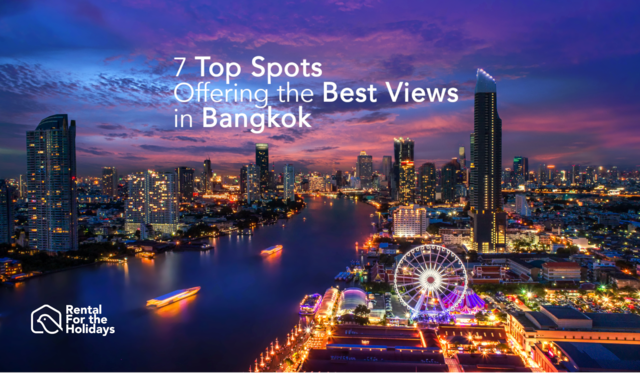Phuket is Awarded a UNESCO City of Gastronomy Certificate
August 07, 2020.
Tags: Phuket, Cuisine
.jpg?frontend_host=https%3A%2F%2Fdigitalplatform.sansiri.com)
Back in 2017, an international event was held on the island of Phuket attended by eighteen city officials from the world cities that had been awarded a City of Gastronomy certificate by UNESCO.
The fact that Phuket was chosen as the site of the first Gastronomy International Symposium was highly significant, as the island was the latest to receive the certificate.
Rather than being awarded to an individual restaurant in a region, as a Michelin Star is bestowed, the UNESCO City of Gastronomy certification elevates an entire region’s cuisine into something unique and special in the world.
The Evolution of Phuket’s Cuisine
Phuket is one of Thailand’s most unique regions, both culturally, linguistically, and architecturally. In the 16th century, Europeans joined Chinese, Indians, Malays, Sea Gypsies and local Siamese to establish a tin-mining industry on the island. This industry was lucrative and gave these culturally diverse people a common reason to set down roots and become permanent residents of the island.
As these mainly Hokkien tin-miners and Siamese women formed unions and had families, the ‘Baba’ culture evolved with influences from all the other nationalities on the island. These Baba people were cousins of the Peranakan culture that became established up and down the Malay peninsula. The Peranakans evolved in much the same way as the Baba’s did. The Sino-Portuguese style of architecture that can be seen all over Phuket Old Town is also a part of the cities of the Malay peninsula.
But the island developed its own language, dress, and way of life. It also developed its own singular cuisine that is now enjoying the spotlight with the bestowal of the City of Gastronomy certification.
Peranakan food is referred to as Nonya-style cooking and is well-known in Indonesia, Malaysia, and Singapore. But with the addition of Thai food preparation techniques and the vegetables and seafood abundant in Phuket, the island's cuisine evolved into something quite different from the Nonya-style of cooking.
.jpg?frontend_host=https%3A%2F%2Fdigitalplatform.sansiri.com)
The Cuisine of Phuket
The cuisine of the island developed into what it is today because of geographical as well as cultural influences. The island has its own varieties of vegetables, fruits, nuts and grains. The abundance of seafood in the waters surrounding the island form a rich and varied source of protein for many of the island’s most famous dishes.
But the cultural influences also play a part in the ingredients of the food. The island is famous for its annual Vegetarian Festival that takes place every ninth lunar month. Hokkiens mainly practice this form of vegetarianism for the length of the festival. The reasons have more to do with honouring and preserving old traditions than observing a healthy lifestyle. Soybean products replace the meat, chicken and fish that usually are featured in these dishes.
Muslim Babas also influenced the cuisine of the island. Their practice of not consuming pork and shellfish except for shrimp was at least partly responsible for the variety of the chicken, fish and shrimp dishes on the island.
Today, you don’t have to try and imagine what a combination of Malay, Indian, Thai and Chinese food would taste like. You just have to visit a traditional restaurant in Phuket and sample your way through a delicious menu that delivers incredible flavours unknown anywhere else in the world.
.jpg?frontend_host=https%3A%2F%2Fdigitalplatform.sansiri.com)
Recognising the Island’s Cuisine
The campaign to recognise the island’s regional cuisine as something unique and special in the world was first broached by the Ministry of Contemporary Arts and Culture. They understood that Phuket’s cuisine and culture was different from mainstream Thailand and encouraged officials of the island to apply for UNESCO certification under the City of Gastronomy category.
There are seven types of certifications awarded by UNESCO to cities that show a creative flair in their development of Crafts and Folk Arts, Design, Film, Gastronomy, Literature, Media Arts, and Music.
There are only one hundred and sixteen cities in the entire world that have received certification in the seven categories. For Phuket to be recognised and singled out for the quality of its cuisine is due to the diligence and hard work of the officials of Phuket like Dr. Kosol Tang-Uthai, Phuket Town’s Deputy Mayor and the President of the Peranakan Phuket Association.
These officials were responsible for arranging a presentation to UNESCO that explained the island’s singular history and the cuisine that evolved because of it. UNESCO was so impressed by the presentation and the cuisine of the island that the officials were ultimately successful in having their cuisine recognised as a treasured contribution to the foods of the world.
If you’re curious to experience the island’s cuisine, the best way is to immerse yourself in the island’s surroundings as well. Rentals for the Holidays have modern and spacious Phuket accommodations all over the island that are available for immediate booking. If you’re wondering what to do in Phuket that’s out of the ordinary, book yourself a table at any of the island's restaurants that specialise in presenting the authentic, historical and delicious dishes of the island. It will be a dining experience that you'll remember fondly for the rest of your life.


